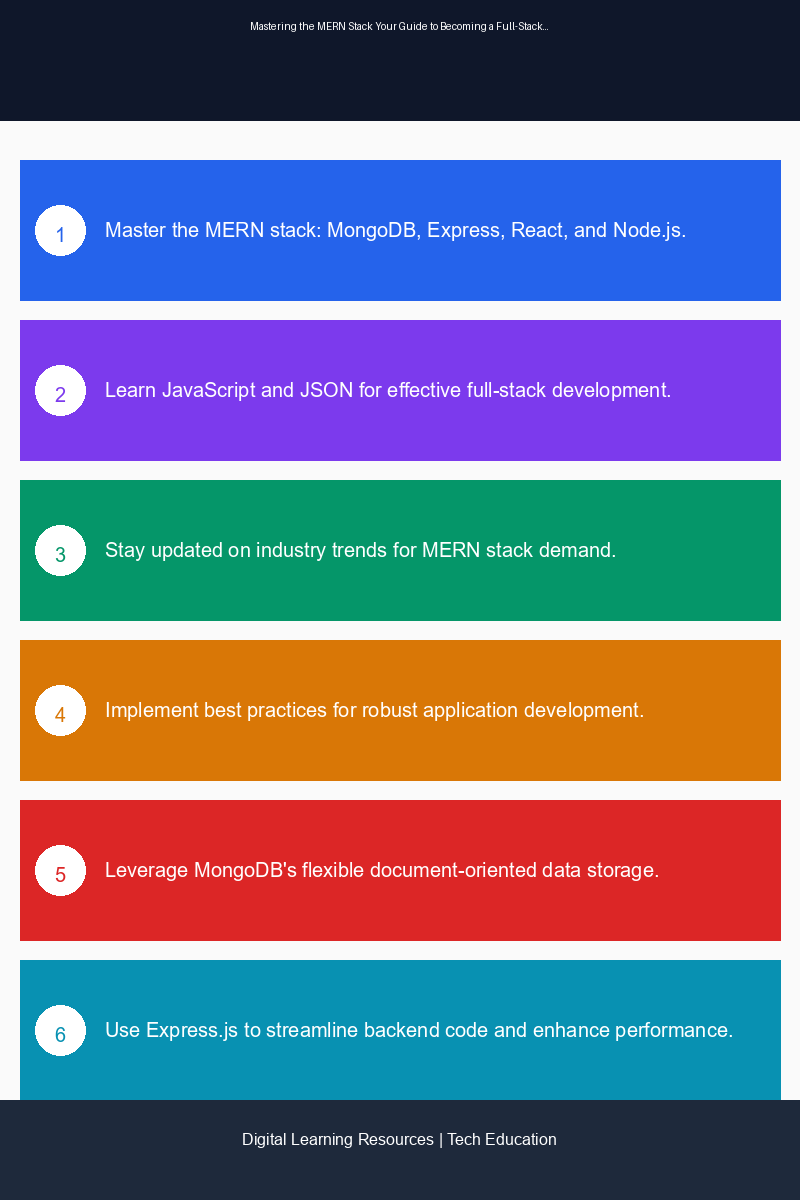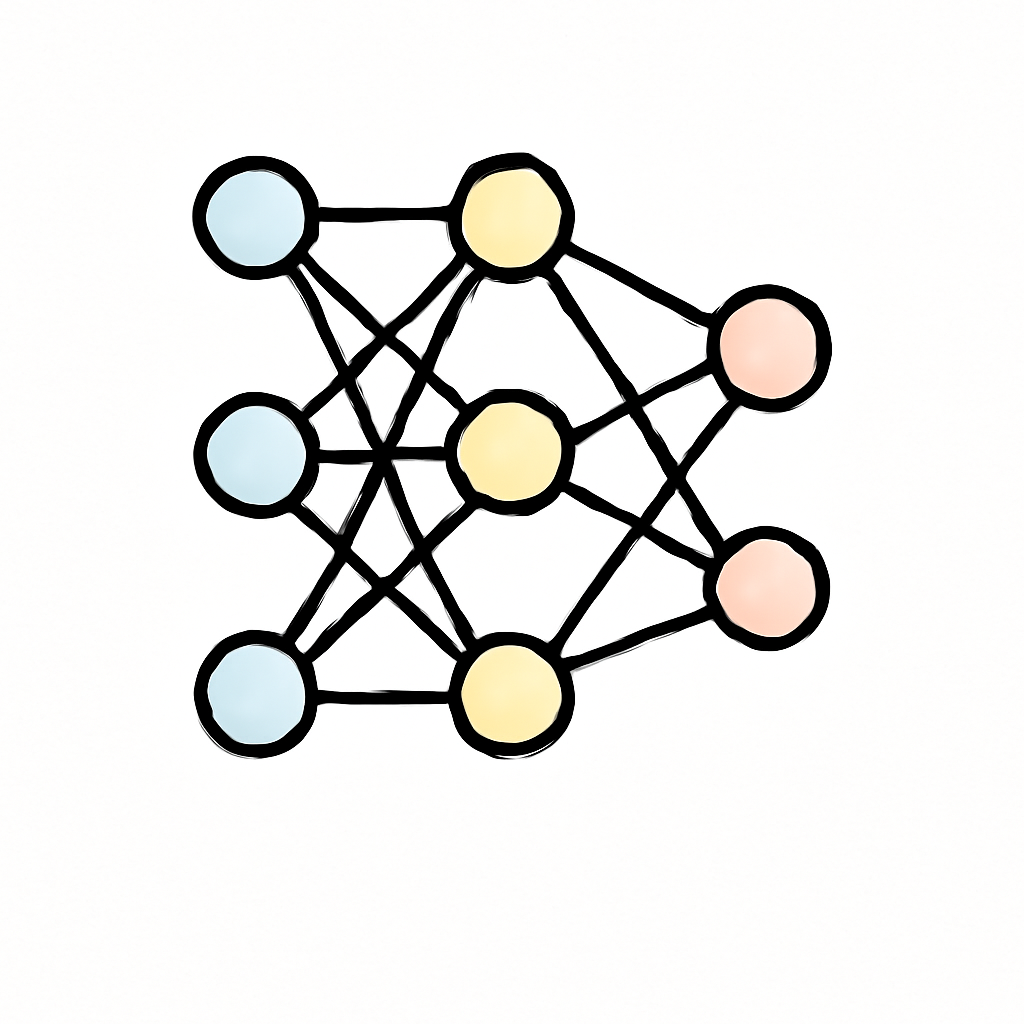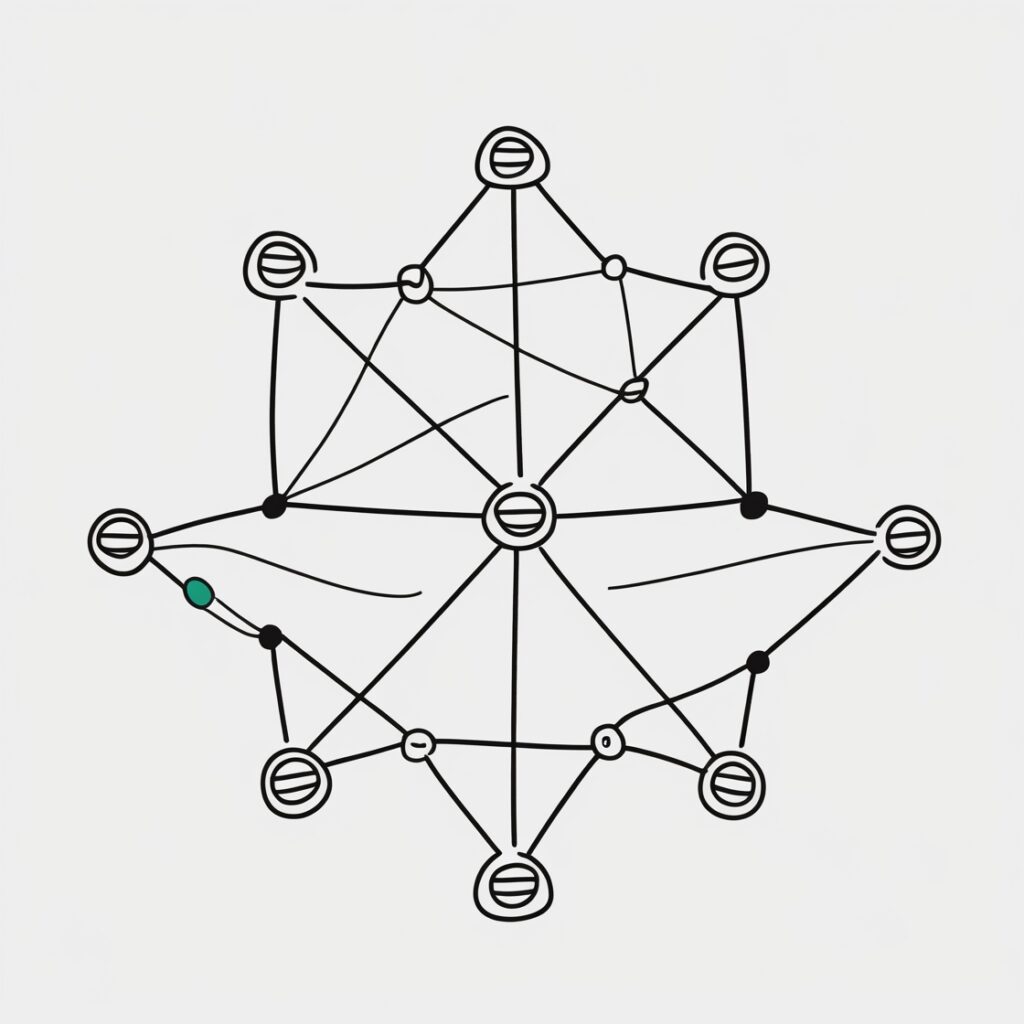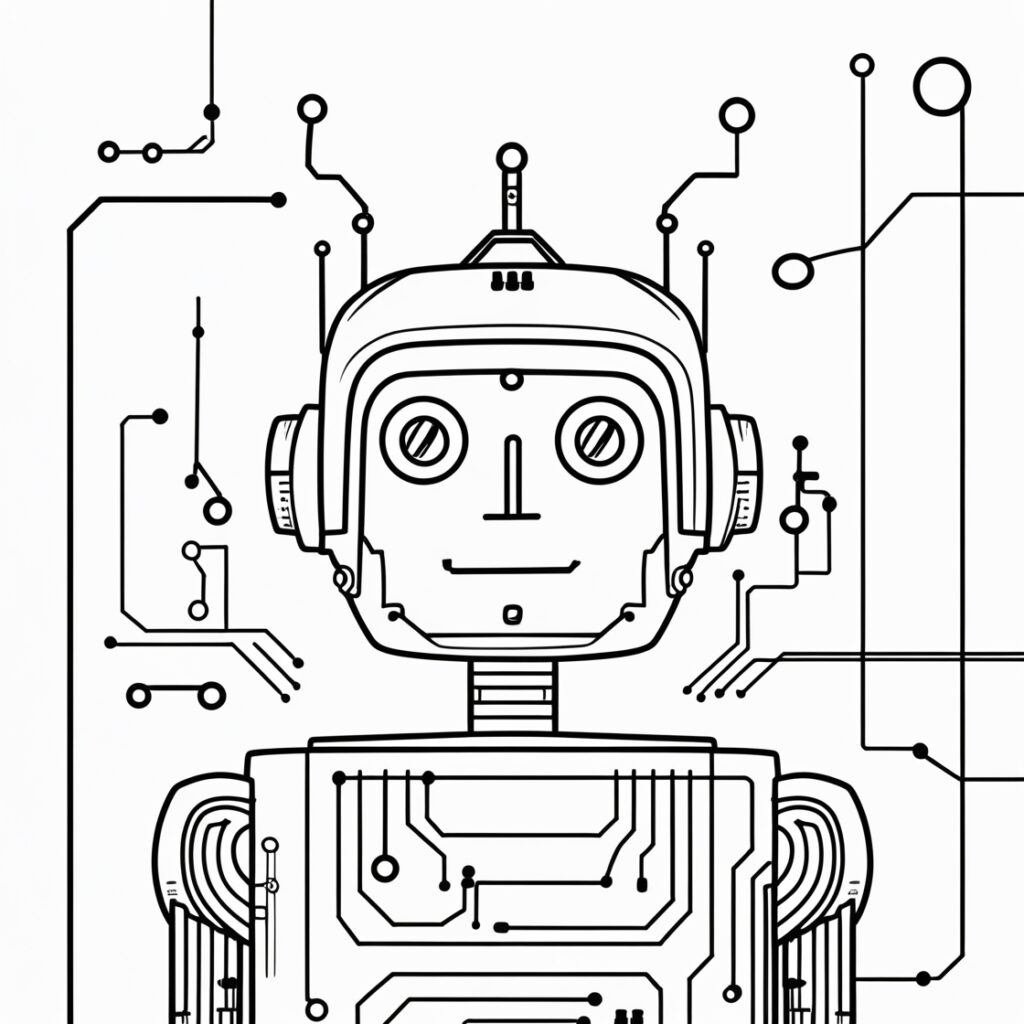In today’s fast-paced digital world, the ability to develop dynamic web applications using the MERN stack is a highly sought-after skill. This comprehensive post will delve into the technical concepts, practical applications, and learning paths associated with MongoDB, Express.js, ReactJS, and Node.js. Whether you are an aspiring developer or an established IT professional, this guide will provide you with actionable insights to enhance your skills and advance your career.
Key Takeaways
- Understanding the four key technologies of the MERN stack: MongoDB, Express.js, ReactJS, and Node.js.
- Importance of learning JavaScript and JSON for full-stack development.
- Insights into industry trends and the growing demand for MERN stack developers.
- Implementation tips and best practices for effective application development.
Technical Background and Context
The MERN stack is a powerful framework for building dynamic web applications using JavaScript across the entire development lifecycle. This stack includes:
- MongoDB: A NoSQL database that stores data in a flexible, document-oriented format using JSON-like key-value pairs. This structure allows for easy data retrieval and manipulation.
- Express.js: A minimal and flexible Node.js web application framework that provides robust features for web and mobile applications. It simplifies backend code writing and supports middleware to enhance the precision of your code.
- ReactJS: A JavaScript library for building user interfaces, known for its ability to create interactive UIs with a virtual DOM, improving performance and speed.
- Node.js: A JavaScript runtime built on Chrome’s V8 engine that allows developers to execute JavaScript on the server side. It also includes npm (Node Package Manager) for managing packages and dependencies.
Practical Applications and Use Cases
The MERN stack is not just a collection of technologies; it allows developers to create a variety of applications. Here are some practical applications:
📚 Recommended Digital Learning Resources
Take your skills to the next level with these curated digital products:
AI Enhanced Resume Builder
AI Resume Builder Flask App – Complete Source Code + PDF Tutorial + HTML | Digital Download for Designers
Learn AWS: Your First Cloud Application
Learn AWS: Your First Cloud Application
📊 Key Learning Points Infographic

Visual summary of key concepts and actionable insights
Comprehensive SAT Prep: 470+ Vocabulary Words
Comprehensive SAT Prep: 470+ Vocabulary Words
Master DevOps in Practice – 50 Essential Topics for Engineers (PDF eBook)
Master DevOps in Practice – 50 Essential Topics for Engineers (PDF eBook)
The Ultimate Keyboard Shortcut Guide 49 Software Cheat Sheets in One PDF Bundle
The Ultimate Keyboard Shortcut Guide 49 Software Cheat Sheets in One PDF Bundle
- Single Page Applications (SPAs): With ReactJS handling the frontend, developers can create responsive and seamless SPAs that provide users with uninterrupted experiences.
- Real-Time Applications: Using Node.js and Express.js, developers can build chat applications and collaborative tools that require real-time data exchange.
- Social Media Platforms: The flexibility of MongoDB and the powerful features of the MERN stack make it ideal for developing social media sites where user-generated content is a core component.
Learning Path Recommendations
To effectively master the MERN stack, follow these learning path recommendations:
- Start with JavaScript: A solid understanding of JavaScript is fundamental. Focus on ES6 features, asynchronous programming, and the DOM.
- Learn JSON: Familiarize yourself with JSON as it is integral to how data is structured and exchanged in the MERN stack.
- Explore Each Technology:
- Begin with MongoDB: Understand how to perform CRUD operations and schema design.
- Move to Express.js: Learn routing, middleware, and error handling.
- Dive into ReactJS: Focus on components, state management, and hooks.
- Finally, grasp Node.js: Learn how to create servers and handle requests.
- Full-Stack Projects: Apply your knowledge through building projects that require integration across the stack.
Industry Impact and Career Implications
The demand for MERN stack developers is on the rise as companies seek faster and more efficient ways to deliver applications. This trend is indicative of the industry’s shift towards JavaScript, which allows developers to work across the entire stack without switching languages. Understanding the MERN stack can significantly enhance your employability and open doors to various career paths, including:
- Full-Stack Developer
- Frontend Developer specializing in ReactJS
- Backend Developer using Node.js and Express.js
- Database Administrator focusing on MongoDB
Implementation Tips and Best Practices
To ensure successful implementation of projects using the MERN stack, consider the following best practices:
- Version Control: Utilize Git for version control to track changes and collaborate effectively.
- Modular Code Structure: Keep your code organized by separating concerns (e.g., controllers, models, routes) to enhance maintainability.
- Use Middleware Wisely: Leverage middleware in Express.js to handle authentication, logging, and error handling efficiently.
- Optimize React Performance: Employ React features like memoization and lazy loading to improve application performance.
- Documentation: Document your code and APIs thoroughly to facilitate understanding and future development.
Future Trends and Skill Requirements
As technology evolves, so does the MERN stack. Here are some future trends and skill requirements to keep an eye on:
- Serverless Architecture: The trend towards serverless solutions is growing, so understanding how to integrate MERN with serverless platforms like AWS Lambda will be beneficial.
- GraphQL: Many developers are shifting from REST APIs to GraphQL for more efficient data fetching, making it a valuable skill to acquire alongside MERN.
- DevOps Skills: Familiarity with CI/CD pipelines and containerization (Docker) will enhance your ability to deploy applications efficiently.
Conclusion with Actionable Next Steps
Embarking on your journey to master the MERN stack can open up vast opportunities in web development. Here are actionable next steps:
- Enroll in Online Courses: Consider taking courses that focus specifically on the MERN stack to gain structured knowledge.
- Join Developer Communities: Engage with online forums, attend meetups, and participate in hackathons to network and learn from peers.
- Build and Share Projects: Create your own projects and share your code on platforms like GitHub to showcase your skills.
- Stay Updated: Follow industry news, blogs, and podcasts to keep abreast of the latest trends and best practices.
By following this guide and actively engaging with the MERN stack, you can position yourself as a valuable asset in the ever-evolving tech landscape. Happy coding!
Disclaimer: The information in this article has been gathered from various reputed sources in the public domain. While we strive for accuracy, readers are advised to verify information independently and consult with professionals for specific technical implementations.
Ready to advance your tech career? Explore our digital learning resources including programming guides, certification prep materials, and productivity tools designed by industry experts.



